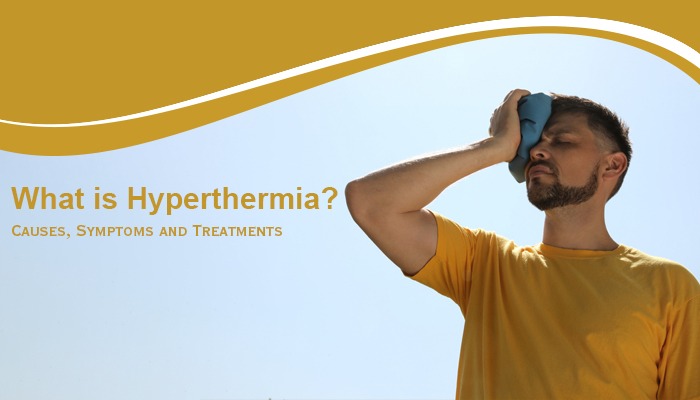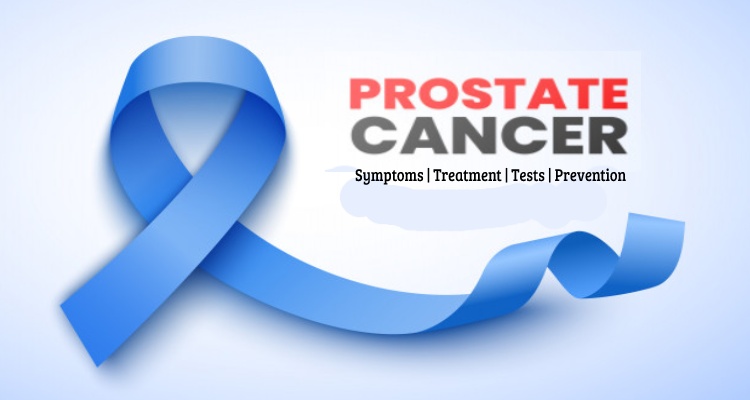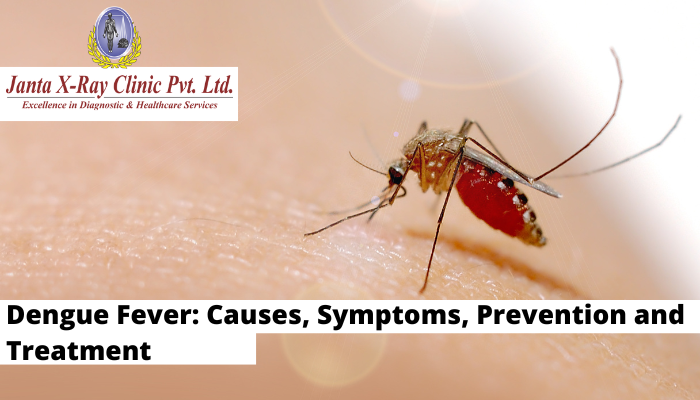What is Hyperthermia: Causes, Symptoms and Treatments

Hyperthermia is a heat-related health condition that is characterized by abnormally high body temperatures. While you may experience mild heat cramps in this condition, heat exhaustion can be severe. Heatstroke is considered the most serious and life-threatening form of hyperthermia.
Therefore, you should not ignore the symptoms of heat illness and consult the doctor at the earliest.
What is Hyperthermia?
Hyperthermia is a health condition that causes extremely high body temperature, also referred to as overheating of the body. It occurs when the body generates or absorbs more heat than what it can release. Typically, the normal body temperature of a human being is about 98.6 degrees Fahrenheit. In contrast, hyperthermia temperature is anything more than 100.4 degrees Fahrenheit.
However, it is not similar to health conditions where you experience a high body temperature due to factors like the body’s heat-regulating problems, an infection, adverse reaction to a medication, or drug overdoses. It occurs when your body’s heat-regulation system gets affected due to external factors. This causes the internal body temperature to rise.
What are the Different Types of Hyperthermia?
Hyperthermia is a group of heat-related illnesses that include the following:
- Heat cramps: When you lose plenty of electrolytes from your body through sweating, it may cause muscle cramps in the hands, arms, feet, and lower legs.
- Heat rash: When hot and humid weather causes profuse sweating, it may cause a skin irritation called heat rash. These small red pimple-like rashes may develop on your neck and upper chest, under the breasts, in elbow crease, or near the groin.
- Heat exhaustion: Heat exhaustion is a severe form of hyperthermia when the body temperature may be as high as 104 degrees Fahrenheit.
- Heat stress: When your job involves working in hot and humid conditions, it can cause occupational heat stress. It can even lead to heat exhaustion or heat stroke.
- Heatstroke: It is the most severe and life-threatening condition where the body temperature rises above 104 degrees Fahrenheit. It may cause problems in the brain or other organs.
Malignant Hyperthermia – What is it?
Malignant hyperthermia is a genetic illness that makes you more vulnerable to the conditions of hyperthermia when you receive a particular combination of anesthesia or sedatives for any medical procedure. As a severe reaction to these medications, the body temperature can rise significantly during or after the surgery. Without immediate treatment, the complications may become fatal.
Hyperthermia vs. Hypothermia
Hyperthermia and hypothermia are two unique health conditions, both related to the body’s reaction to heat. Unlike hyperthermia, hypothermia occurs when the body loses heat faster than what it can produce. This can cause the body temperature to fall dangerously. It occurs when the body temperature drops below 95 degrees Fahrenheit.
Hypothermia is primarily caused due to exposure to extreme cold weather. It causes the temperature to fall which inhibits the nervous system, heart, and other organs to work optimally. If not treated immediately, hypothermia can result in complete failure of the respiratory system or the heart.
What Causes Hyperthermia?
Hyperthermia occurs when the body absorbs more heat than what it can release. Often, the body’s natural cooling mechanism fails to maintain the normal body temperature. This causes the temperature to rise, resulting in the symptoms of hyperthermia. Physical exertion in extremely hot and humid weather is one of the primary causes of this health condition.
Symptoms of Hyperthermia
The symptoms may vary depending on the hyperthermia condition you have. For example, heat cramps may cause muscle spasms in the calves, thighs, feet, arms, and hands. The muscles often feel sore when the cramp passes.
On the other hand, symptoms of heat exhaustion may include:
- Headache
- Fatigue
- Blurred vision and dizziness
- Fast heart rate or breathing
- Low blood pressure
- Light-headedness or fainting
- Weakness
- Muscle cramps or aches
- Vomiting and nausea
On the other hand, symptoms of heatstroke are quite similar to heat exhaustion but may also include:
- Balance problems
- Anhidrosis or dry skin that does not sweat
- High or low blood pressure
- Delirium that causes disorientation or confusion
- Seizures
- Very pale skin or hot, flushed skin
Heatstroke may result in organ failure or the person may even slip into a coma. Therefore, if you experience the above symptoms of exhaustion or heat stroke, seek instant medical attention or visit a reliable diagnostic center like Janta X-ray Clinic.
Diagnosis of Hyperthermia
Your doctor will review your symptoms, perform a physical examination and take your body temperature. Often, they may recommend getting a urine or blood test done.
Treatment of Hyperthermia
Hyperthermia treatment will vary depending on your health condition. On experiencing the above symptoms, move to a shaded, cool place immediately that has good airflow. Here are some tips to treat mild to moderate symptoms:
- Sip electrolyte drink or cool water to stay hydrated
- Remove excess clothing
- Take a cool shower or bath
- Lay down and try to relax
- Compress ice packs under the groin and arms
- Place a wet, cool cloth on the forehead
If the symptoms remain to enact, consult a doctor immediately.
For effective diagnosis of severe hyperthermia, trust Janta X-ray Clinic that provides comprehensive diagnostic testing solutions in Delhi/NCR.
Disclaimer: The information on this website should not be used as a substitute for professional medical care or advice. Contact a health expert if you have questions about your health.







.jpg)


1.jpg)
.png)
.jpg)
.jpg)
Comments List